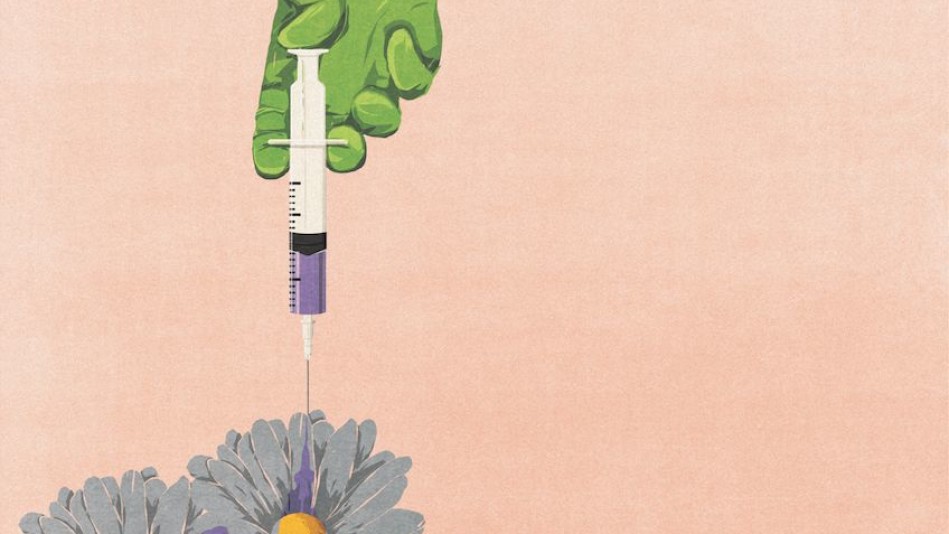The HPV Vaccination Debate
Doctors say it could prevent cervical cancer. So why are some women hesitating to vaccinate themselves and their daughters? Dr. Jennifer Ashton, an ob-gyn and CBS News medical correspondent, argues both sides so that you can make an educated decision.

By far, the most common sexually transmitted disease in the United States is the human papilloma virus, also known as HPV. This destructive virus causes genital warts, abnormal pap smears, cervical cancer and some anal and throat cancers. By the age of 50, 80 percent of women have been exposed to HPV. The virus is passed by direct, skin-to-skin contact, so condoms do not completely prevent transmission.
In 2006, a cervical cancer vaccine was approved by the United States Food and Drug Administration (FDA) that helps your body mount immunity against HPV. It covers only four of the more than 100 subtypes of HPV. These four types are also the four most aggressive, high-risk types in the United States and are those linked with 70 percent of cervical cancer cases and a majority of cases of genital warts.
The vaccine does not contain live HPV, so you cannot contract the virus by receiving the vaccine. Even though the vaccine has only been available for three years, more than 23 million doses have already been administered in the United States. If you are injected with the vaccine, it does not mean that you will not get HPV. You still can because there are so many different types of the virus the vaccine does not affect.
The Argument for Vaccination
If vaccinated, you will have a greatly reduced risk of cervical cancer. While you can still have an abnormal pap smear after being vaccinated, it is less likely. This is significant since the consequences of having abnormal paps range from inconvenience and expense of having additional minor testing to more serious consequences, such as having biopsies or surgery on your cervix to remove abnormal cells. Biopsies are painful, nothing more, but surgery can jeopardize your reproductive future, complicating future pregnancies.
If you are exposed to HPV and have not been vaccinated, the body's immune system would likely purge the virus on its own and develop immune memory (antibodies) for future protection. Studies have shown, however, that antibody levels that develop naturally are lower than those that develop after vaccination. As for cervical cancer, 4,400 American women a year die of cervical cancer out of a female population of 155 million, so the odds are well against you developing cervical cancer, so long as you are responsible about seeing a gynecologist regularly. Still, cases of cervical cancer still happen, even to responsible women who have regular checkups. But hundreds of thousands of women have abnormal pap smears every year, and that is a much more realistic threat to a woman's health.
The Argument Against HPV Vaccination
Many believe that the marketing and advertisement as "a cancer vaccine" unfairly played on people's fears. There are other ways to prevent cervical cancer: Don't have sex. That is probably unrealistic, but at least women should understand that cervical cancer is sexually transmitted. Many doctors believe that the recommended age of 11 to 13 for girls to receive the vaccine is probably too young for a number of reasons and that counseling for this vaccine should probably be offered by gynecologists, who are more familiar with HPV-related disease, rather than pediatricians.
In addition, reports of some serious and uncommon reactions in teens after receiving the vaccine are a cause for concern. Statistics on possible side effects are tracked via VAERS, a public database operated in conjunction with the Centers for Disease Control and Prevention and the FDA. Some reactions cannot be explained by the science and medicine behind the vaccine. Fatal motor accidents and suicides have been linked to the vaccine.
To put the risk into perspective, more than 23 million doses of the vaccine have been given to date, and there have been 770 adverse effects and 32 deaths. However, for girls who believe they were affected by the vaccine, that number is a significant concern. After all, people who get vaccinations are generally trying to prevent disease or illness and are usually healthy.
So What Should You Do?
It comes down to risk versus benefit. No vaccine is without risks. You should discuss both sides of this complicated issue with a doctor you trust. As a gynecologist, as a woman and as a mother, I respect a woman's decision either way.
Dr. Jennifer Ashton is a board-certified ob-gyn who specializes in adolescent gynecology. In March 2009, Dr. Ashton joined CBS as a news medical correspondent. She reports on a broad range of medical topics for CBS News' The Early Show and contributes to the division's other broadcasts and platforms. Dr. Ashton is the author of the upcoming book The Body Scoop for Girls (Avery, January 2010). For more from Dr. Jennifer Ashton, visit cbsnews.com.



